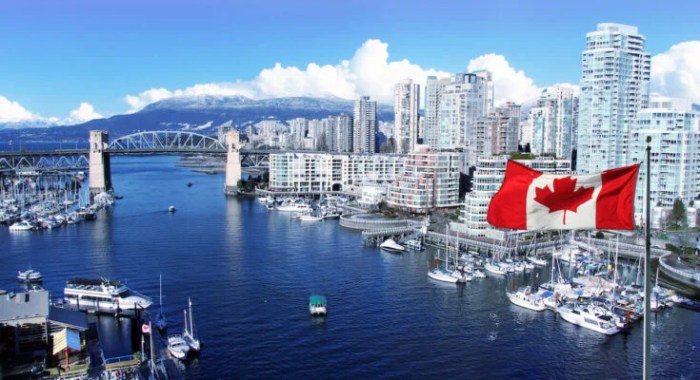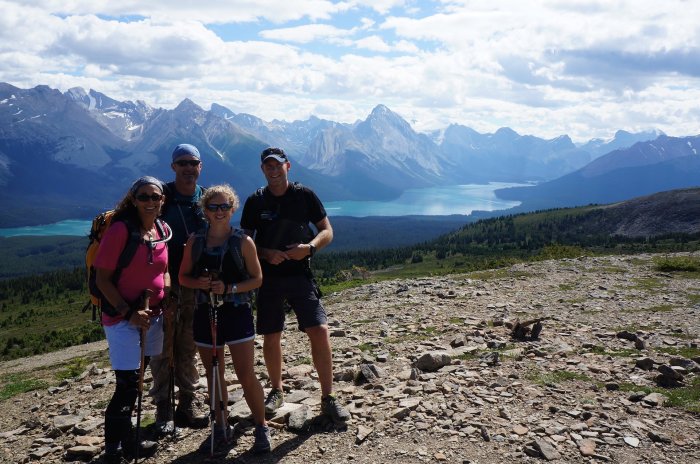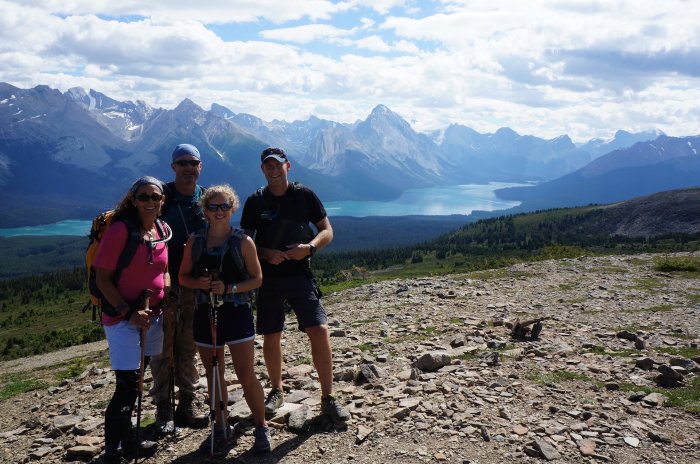Embark on extraordinary journeys with Travel Groups Canada, where adventure awaits around every corner. From breathtaking wilderness expeditions to immersive cultural experiences, these groups offer an unparalleled way to explore the diverse landscapes and rich heritage of the Great North.
Whether you seek adrenaline-pumping hikes, wildlife encounters, or a deep dive into local traditions, Travel Groups Canada has a group tailored to your every desire. Join fellow travelers and create memories that will last a lifetime.
Top Travel Groups in Canada
Canada offers a diverse range of travel experiences, from breathtaking landscapes to vibrant cities. To make the most of your Canadian adventure, consider joining a reputable travel group that aligns with your interests and budget.
Whether you’re seeking adventure, relaxation, or cultural immersion, here’s a curated list of the top travel groups in Canada:
Intrepid Travel
- Unique Offerings: Small group tours, responsible travel practices, local experiences
- Target Audience: Adventurous travelers seeking immersive experiences
G Adventures
- Unique Offerings: Customizable itineraries, adventure-packed trips, community-based tourism
- Target Audience: Active travelers looking for off-the-beaten-path experiences
Contiki
- Unique Offerings: Social tours for young adults, party atmosphere, guided excursions
- Target Audience: Budget-conscious travelers seeking a lively social experience
EF Go Ahead Tours
- Unique Offerings: Educational tours with expert guides, cultural immersion, group discounts
- Target Audience: History buffs, culture enthusiasts, seniors
Adventures by Disney
- Unique Offerings: Family-friendly tours, Disney-themed experiences, educational programs
- Target Audience: Families with children of all ages
Types of Travel Groups

When it comes to joining a travel group, there’s a smorgasbord of options out there. Each type caters to different interests and preferences, so it’s important to do your research before committing. Here’s a breakdown of some of the most popular types of travel groups:
Adventure Travel Groups
These groups are all about getting your adrenaline pumping. They typically offer trips that involve activities like hiking, biking, kayaking, and rock climbing. Adventure travel groups are a great way to explore new places and challenge yourself physically. However, they’re not for the faint of heart. You’ll need to be prepared for some tough conditions and plenty of physical exertion.
Cultural Immersion Travel Groups
These groups focus on providing travelers with an in-depth understanding of a particular culture. They typically offer trips that include visits to historical sites, cultural landmarks, and local communities. Cultural immersion travel groups are a great way to learn about new cultures and gain a deeper appreciation for the world around you.
Wildlife Travel Groups
These groups are designed for travelers who are interested in seeing wildlife in their natural habitat. They typically offer trips to national parks, wildlife reserves, and other areas where animals can be observed. Wildlife travel groups are a great way to learn about different species and see animals up close.
Family-Friendly Travel Groups
These groups are specifically designed for families with children. They typically offer trips that are tailored to the interests of children and that include activities that the whole family can enjoy. Family-friendly travel groups are a great way to bond with your family and create lasting memories.
Benefits of Joining a Travel Group

Embarking on a journey with a travel group offers a myriad of advantages, transforming your travel experience into an unforgettable adventure. From cost savings to shared memories and enhanced safety, travel groups cater to diverse interests and needs, unlocking unique destinations and experiences.
Whether you’re planning a group getaway or simply looking for some travel inspiration, joining a travel group can be a great way to explore Canada. With a wide range of options available, from guided tours to independent travel, there’s sure to be a group that fits your needs.
To learn more about the different types of travel groups available, check out our article on travel about tours. Once you’ve found a group that you’re interested in, be sure to do your research to make sure it’s a good fit for you.
With a little planning, you can find a travel group that will help you create memories that will last a lifetime.
Shared Experiences
Joining a travel group fosters a sense of camaraderie and shared experiences that enrich your journey. Surrounded by like-minded individuals, you’ll create lasting bonds and memories while exploring new cultures and destinations together.
Access to Unique Experiences
Travel groups often have exclusive access to unique experiences and destinations, unavailable to individual travelers. From private tours and behind-the-scenes access to cultural immersion programs, these groups provide unparalleled opportunities to delve into the heart of your travel destinations.
Diverse Travel Groups
Travel groups come in various forms, catering to specific interests and needs. Whether you’re seeking adventure, cultural immersion, or special interests, you’ll find a group that aligns with your passions and preferences.
Examples of Successful Travel Groups
- Intrepid Travel: Known for adventure and sustainable travel, Intrepid offers a wide range of group tours to destinations worldwide, including Antarctica, the Galapagos Islands, and Southeast Asia.
- G Adventures: Focusing on small-group tours, G Adventures provides immersive experiences that connect travelers with local cultures and communities.
- Road Scholar: Catering to seniors, Road Scholar offers educational tours that combine travel with learning opportunities, covering history, culture, and the arts.
Finding the Right Travel Group
Discovering the ideal travel group for your adventure can be a fulfilling endeavor. Whether you seek a tailored experience or prefer to join a group with shared interests, there are numerous reputable organizations catering to diverse travel preferences.
Research and Comparison
- Online Reviews: Peruse websites like TripAdvisor, Google My Business, and Yelp for firsthand accounts of travelers who have experienced different travel groups.
- Social Media: Join travel-related Facebook groups or follow travel influencers on Instagram to gather insights and recommendations.
- Travel Agents: Consult with experienced travel agents who can provide personalized guidance and connect you with reputable groups that align with your requirements.
Reputation and Credentials
Verify the group’s reputation by checking their website, social media presence, and online reviews. Look for groups that have been operating for an extended period, have a strong track record, and hold industry certifications or affiliations.
Trip Details and Logistics
Carefully review the trip itinerary, including destinations, accommodations, transportation, and activities. Ensure that the group’s travel style and pace align with your preferences. Consider factors such as group size, physical activity level, and budget.
Group Dynamics and Culture
Inquire about the group’s culture and values. Some groups emphasize camaraderie and social interaction, while others prioritize privacy and independence. Choose a group that fosters an environment that resonates with your personality and travel goals.
Planning a Trip with a Travel Group: Travel Groups Canada
Embarking on an adventure with a travel group can be an enriching and unforgettable experience. Planning a trip with a group requires meticulous coordination and effective communication to ensure a seamless and enjoyable journey for all.
Defining Trip Goals
Start by clearly outlining the purpose and desired outcomes of your trip. Determine whether it’s a relaxing getaway, an adventure-packed expedition, or a cultural immersion. This will help guide your itinerary and decision-making.
Establishing a Budget
Set a realistic budget that aligns with the trip’s goals and the financial capabilities of all group members. Determine how costs will be shared, whether equally or based on individual expenses.
Creating an Itinerary
Plan a tentative itinerary that includes activities, accommodations, and transportation. Consider the interests and preferences of all group members and strive for a balance between popular attractions and hidden gems.
When it comes to planning your next adventure, consider joining a travel group. Whether you’re looking for a guided tour or a more independent experience, there’s a group out there that can meet your needs. And if you’re looking for an unforgettable trip, be sure to check out trip and tour holidays.
With their expert guides and carefully curated itineraries, you’re sure to have an amazing time exploring new destinations and making memories that will last a lifetime. Travel groups can also help you save money on your trip, as they often negotiate discounts on flights, accommodations, and activities.
Recruiting Group Members
Find and invite compatible individuals to join your travel group. Look for people who share similar interests, travel styles, and values. A harmonious group dynamic is crucial for a successful trip.
Managing Group Communication
Establish a communication platform, such as a group chat or online forum, to facilitate discussions and decision-making. Set clear guidelines for group communication, including response times and respectful language.
Making Decisions
Utilize consensus or majority voting to make group decisions on itinerary, accommodations, and other aspects of the trip. Encourage open and respectful discussions, and strive to find solutions that accommodate the preferences of all members.
| Step | Considerations |
|---|---|
| 1. Define Trip Goals | Determine the purpose and desired outcomes of the trip. |
| 2. Establish Budget | Set a realistic budget and determine how costs will be shared. |
| 3. Create Itinerary | Plan a tentative itinerary that includes activities, accommodations, and transportation. |
| 4. Recruit Group Members | Find and invite compatible individuals to join the travel group. |
| 5. Manage Group Communication | Establish a communication platform and set guidelines for group discussions. |
| 6. Make Decisions | Utilize consensus or majority voting to make group decisions on itinerary, accommodations, and other aspects of the trip. |
Safety Considerations
Joining a travel group can be an exciting and rewarding experience, but it’s essential to prioritize safety throughout your journey. Choose a reputable group with a proven track record and clear safety protocols. Stay vigilant while traveling, be aware of your surroundings, and trust your instincts.
Develop a comprehensive safety plan and share it with trusted individuals. This plan should include emergency contact information, a detailed itinerary, and a communication strategy. Familiarize yourself with the local laws and customs of your destination and respect cultural norms.
Choosing a Reputable Group
- Research potential groups thoroughly, read reviews, and verify their credentials.
- Inquire about their safety policies, emergency procedures, and insurance coverage.
- Consider groups that prioritize small group sizes and experienced guides.
Staying Safe While Traveling
- Be aware of your surroundings and avoid isolated areas, especially at night.
- Keep valuables secure, and consider using a money belt or RFID-blocking wallet.
- Stay connected with your group and inform them of your plans.
Handling Emergencies
- Remain calm and assess the situation.
- Contact your group leader or local authorities immediately.
- Follow the instructions of local officials and stay informed about any safety updates.
| Destination | Tips |
|---|---|
| Urban Areas | Be aware of pickpockets, avoid large crowds, and stay alert at night. |
| Remote Areas | Inform someone of your itinerary, carry a personal locator beacon, and be prepared for weather changes. |
| International Destinations | Respect local customs, learn basic phrases, and register with your embassy. |
“Safety is not just about avoiding danger; it’s about being prepared, aware, and confident.” – Rick Steves, travel writer and TV host
Travel Insurance
Travel insurance is an essential component of any group trip, providing protection against unexpected events that can disrupt your travel plans or lead to financial losses.
There are various types of travel insurance policies available, each offering different levels of coverage. It’s crucial to compare and choose the right coverage that meets your specific needs and the potential risks associated with your group trip.
Coverage Options
- Trip cancellation and interruption insurance: Covers expenses incurred if you have to cancel or interrupt your trip due to covered reasons, such as illness, injury, or unforeseen circumstances.
- Medical expenses insurance: Provides coverage for medical expenses incurred during your trip, including doctor visits, hospital stays, and emergency medical transportation.
- Baggage loss or damage insurance: Reimburses you for lost, stolen, or damaged luggage and personal belongings.
- Accidental death and dismemberment insurance: Provides a lump sum payout to your beneficiaries in the event of your accidental death or dismemberment during your trip.
- Trip delay insurance: Covers expenses incurred if your trip is delayed due to covered reasons, such as weather or mechanical issues.
When selecting travel insurance, consider factors such as the destination, duration of your trip, activities planned, and any pre-existing medical conditions you or your group members may have. By purchasing comprehensive travel insurance, you can protect yourself and your group from financial risks and ensure a worry-free travel experience.
Packing for a Group Trip
Group travel is a fantastic way to explore new places and make memories with friends. However, packing for a group trip can be a bit different than packing for a solo trip. Here are a few tips to help you pack like a pro:
Space Limitations
When packing for a group trip, you’ll need to be mindful of space limitations. You’ll likely be sharing a room with other people, so you’ll need to pack light and leave plenty of room for your fellow travelers.
Sharing Essentials
One way to save space is to share essentials with your group members. For example, you can pack one first-aid kit, one set of toiletries, and one set of cooking utensils for the entire group. This will help to reduce the amount of space that you need.
Packing for Different Activities
If you’re planning on doing a variety of activities on your trip, you’ll need to pack accordingly. Make sure to pack clothes for all types of weather, as well as clothes for any specific activities that you have planned.
Coordinating with Group Members
Before you start packing, it’s a good idea to coordinate with your group members to avoid duplicate items. For example, you can create a shared packing list or use a packing app to keep track of what everyone is bringing.
Maximizing Space
There are a few things you can do to maximize space in your suitcase. First, use compression bags to reduce the size of your clothes. Second, use packing cubes to organize your belongings. And third, roll your clothes instead of folding them.
Packing for Shared and Personal Spaces
When packing for a group trip, it’s important to pack for both shared and personal spaces. For shared spaces, pack items that you’ll need to share with your group members, such as toiletries, first-aid supplies, and cooking utensils. For personal spaces, pack items that you’ll need for yourself, such as clothes, electronics, and books.
Fragile or Bulky Items
If you’re packing any fragile or bulky items, be sure to pack them carefully. Wrap fragile items in bubble wrap or tissue paper, and place them in a sturdy suitcase. Bulky items can be packed in a separate suitcase or duffle bag.
– Etiquette for Group Travel

Traveling in a group can be an enriching experience, but it also requires a certain level of etiquette to ensure a harmonious and enjoyable trip for everyone involved.
Establishing clear guidelines for respectful and considerate behavior within a travel group is essential for maintaining a positive and inclusive atmosphere. These guidelines should cover various aspects of group dynamics, including punctuality, sharing responsibilities, and respecting cultural differences.
Punctuality
Punctuality is crucial for group travel. Respecting the agreed-upon meeting times shows consideration for others and ensures that everyone can participate fully in planned activities.
Sharing Responsibilities
When traveling in a group, it’s important to share responsibilities. This can include tasks such as planning the itinerary, making reservations, or carrying shared items. By distributing the workload, everyone can contribute to the smooth functioning of the group.
Respecting Cultural Differences
When traveling in a group with people from diverse backgrounds, it’s important to be mindful of cultural differences. This includes respecting local customs, traditions, and values. Being open to new experiences and perspectives can enhance the overall group experience.
Technology and Communication
Technology plays a vital role in enhancing communication and coordination within a travel group. From planning to execution, it streamlines the process, keeps everyone connected, and makes the trip more enjoyable.
-
Apps for Coordination
-
Social Media for Group Bonding, Travel groups canada
-
Technology for Navigation and Information
-
Potential Drawbacks
-
Inclusivity and Accessibility
-
Documenting and Sharing Experiences
Apps like WhatsApp, Telegram, or GroupMe provide instant messaging, group chats, and file sharing, allowing members to stay in touch and share updates, photos, and travel documents.
Social media platforms like Facebook or Instagram can create private groups for travel companions to connect, share experiences, and build a sense of community before and during the trip.
GPS apps like Google Maps or Waze help with navigation and provide real-time updates on traffic and road conditions. Translation apps like Google Translate can assist with language barriers.
Relying solely on technology can have drawbacks. Privacy concerns may arise, and technical difficulties or poor connectivity can disrupt communication. Ensure everyone has access to necessary devices and can use them effectively.
Consider the technological capabilities and preferences of all group members. Provide alternative communication methods for those without smartphones or internet access, such as designated meeting points or offline maps.
Technology allows travelers to capture and share their experiences easily. Social media, travel blogs, and photo-sharing platforms enable group members to document their adventures and share them with friends and family back home.
| Tool | Advantages | Disadvantages |
|---|---|---|
| Messaging Apps | Instant communication, file sharing, group chats | Privacy concerns, battery drain |
| Social Media | Group bonding, community building, photo sharing | Limited privacy, potential for oversharing |
| GPS Apps | Accurate navigation, real-time traffic updates | Battery drain, reliance on internet connectivity |
| Translation Apps | Language barrier assistance, offline translation | Limited accuracy, may not cover all languages |
Managing Group Finances
Organizing finances for a group trip can be a daunting task, but with proper planning and communication, it can be managed effectively. This section will explore strategies for managing group expenses, avoiding financial disputes, and ensuring transparency.
Methods for Splitting Group Expenses
There are several methods for splitting group expenses, each with its advantages and disadvantages:
- Equal Split: Each member contributes an equal share, regardless of individual expenses. Advantages: Simple and fair. Disadvantages: May not reflect actual spending patterns.
- Per-Person Split: Each member pays for their own expenses, with no sharing. Advantages: Fair and transparent. Disadvantages: Can be inconvenient for shared expenses like transportation.
- Expense Tracking: Members keep track of their individual expenses and settle up at the end of the trip. Advantages: Accurate and reflects actual spending. Disadvantages: Requires meticulous record-keeping and trust.
- Hybrid Split: A combination of equal split and per-person split, where certain expenses are shared equally while others are paid individually. Advantages: Balances fairness and convenience. Disadvantages: Can be more complex to manage.
Group Finance Agreement
To avoid disputes and ensure transparency, it’s essential to create a group finance agreement before the trip. This agreement should include:
- Agreed-upon method for splitting expenses
- Responsibilities for managing group funds
- Procedures for handling unexpected expenses
- Consequences for non-payment or late payment
By following these strategies and establishing clear guidelines, you can effectively manage group finances and ensure a harmonious travel experience.
Resolving Conflicts
Navigating conflicts within a travel group is crucial for a harmonious and enjoyable experience. Effective communication, mediation techniques, and a willingness to compromise are key in resolving issues.
Communication
- Foster open and honest communication, encouraging everyone to express their perspectives respectfully.
- Listen actively to others’ viewpoints, acknowledging their feelings and seeking clarification when needed.
- Avoid using accusatory language or blaming others. Instead, focus on describing the issue objectively.
Mediation
If direct communication proves challenging, consider seeking assistance from an impartial mediator, such as a tour leader or a trusted group member.
- Mediators can facilitate discussions, guide conversations, and help identify common ground.
- They can also provide an external perspective and assist in developing mutually acceptable solutions.
Compromise
Compromise is often necessary to resolve conflicts amicably. It involves finding a solution that meets the needs of all parties, even if it’s not ideal for any one person.
- Be willing to negotiate and adjust your expectations.
- Consider the perspectives of others and try to understand their priorities.
- Focus on finding a solution that preserves the group’s overall harmony.
Making the Most of Your Travel Group Experience
Traveling with a group offers a unique opportunity to enhance your travel experience and create unforgettable memories. To maximize the benefits of group travel, here are some tips to keep in mind:
Embrace the social aspect of group travel by actively engaging with your fellow travelers. Share stories, ask questions, and learn from their perspectives. This can lead to unexpected connections and a deeper understanding of the destinations you visit.
Be Open to New Experiences
One of the best things about group travel is the opportunity to try new things you might not otherwise consider. Whether it’s trying a local delicacy, exploring an off-the-beaten-path attraction, or participating in a group activity, embrace the chance to step outside your comfort zone and make the most of your time abroad.
From exploring the rugged Canadian wilderness with travel groups Canada, to embarking on thrilling adventures in the United States ( Adventure Trips United States ), the possibilities are endless. Whether it’s hiking through breathtaking national parks, kayaking along pristine coastlines, or conquering towering mountains, travel groups Canada cater to every adventure enthusiast.
So, gear up and get ready for an unforgettable journey, whether it’s across the border or right here in Canada.
Document Your Memories
Capture the moments that make your group travel experience special. Take plenty of photos, videos, and notes to preserve the memories and share them with others. Consider creating a shared online album or blog to document your adventures as a group.
Stay Connected
In the age of technology, staying connected while traveling is easier than ever. Use social media to share your experiences, connect with fellow travelers, and stay updated on group plans. Utilize messaging apps to coordinate meet-ups and keep everyone informed.
Be Respectful and Considerate
Remember that group travel involves spending extended periods with others. Be respectful of your fellow travelers’ time, space, and opinions. Consider their needs and preferences when making decisions, and always treat them with kindness and empathy.
Embrace the Adventure
Group travel is an adventure in itself. Embrace the unexpected, go with the flow, and don’t be afraid to deviate from the plan if something spontaneous and exciting arises. The best travel experiences often come from the unplanned moments.
Conclusion
As you plan your next adventure, consider the exceptional offerings of Travel Groups Canada. With their expertise, safety measures, and unwavering commitment to creating unforgettable experiences, you can rest assured that your journey will be nothing short of extraordinary.
Quick FAQs
What are the benefits of joining a travel group in Canada?
Travel groups offer a range of advantages, including shared experiences, cost savings, access to unique destinations, and the opportunity to connect with like-minded travelers.
How do I find the right travel group for me?
Research different groups, compare their itineraries and offerings, read reviews, and consider your personal interests and preferences.
What safety measures should I consider when joining a travel group?
Choose reputable groups with a proven track record, share your itinerary with family or friends, and have a safety plan in place.
